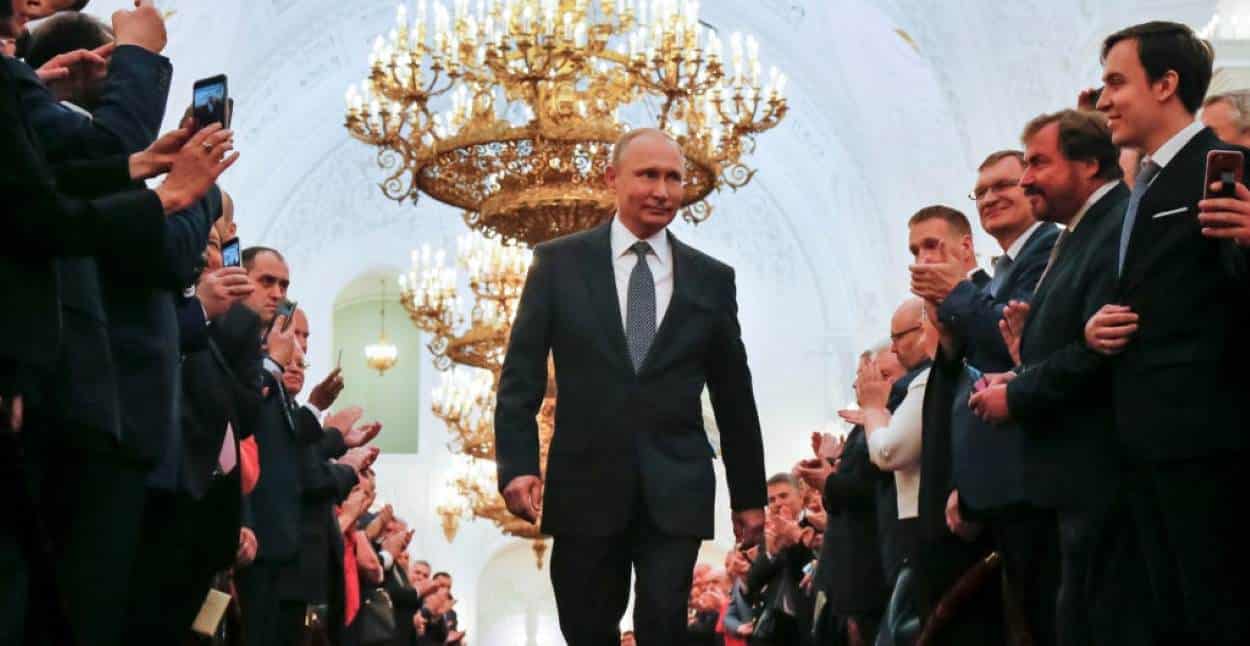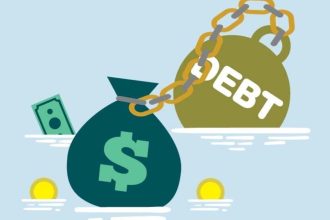Vladimir Putin, revered like a tsar at his inauguration for another six-year term, delivered a nuanced message to the West: Russia is open to dialogue but is also preparing for victory in Ukraine.
Putin, ascending to the Kremlin’s pinnacle only eight years after the Soviet Union’s dissolution, could surpass Josef Stalin and become Russia’s longest-serving leader since Catherine the Great if he completes this term.
The 71-year-old former KGB spy radiated confidence during the meticulously staged inauguration. Critics from the West and his opposition—most of whom are either incarcerated or in exile—label it a mere facade of democracy veiling a corrupt Russian autocracy.
Under the shadow of the old imperial throne, Putin prepared in his office inside the Grand Kremlin Palace’s Hall of Saint Andrew. He walked through Kremlin corridors, saluting guards and pausing to study a wall painting.
“We do not refuse dialogue with Western states,” Putin declared post-oath, signalling readiness for discussions on security and strategic stability, conditional on the absence of Western “arrogance.”
Celebrating over two decades of leadership, Putin vowed victory, emphasizing that all Russians bear responsibility for their millennia-old heritage.
Exiting to the strains of “Hail” from Mikhail Glinka’s opera “A Life for the Tsar,” lyrics praising Russia resonated through the Kremlin, echoing the opera’s original homage to Russian tsars.
Gennady Zyuganov, Communist Party leader, remarked on Putin’s soaring authority, placing it above that of American and historical Russian leaders.
The 2022 invasion of Ukraine by Putin ignited severe tensions with the West, reminiscent of the 1962 Cuban Missile Crisis, with Russia advancing its military positions and outpacing NATO in artillery production.
The West condemns Putin as an autocrat and war criminal. President Joe Biden referred to him as a “crazy SOB” overseeing a corrupt dictatorship. Putin frames the conflict as a battle against a decadent West, encroaching on Moscow’s sphere of influence post-Berlin Wall.
Sergei Naryshkin of Russia’s SVR saw Putin’s speech as a call for dialogue, asserting Russia’s commitment to its development and security.
Following a threat perception from Western nations, Putin ordered nuclear drills. His ceasefire proposal in Ukraine was dismissed by the United States, as per intermediaries contacted by Reuters.
In Russia, the conflict has bolstered Putin’s power and popularity, with him securing 88% in the recent election, despite international criticisms of election fairness.
Major Western nations boycotted his inauguration, dismissing it as irrelevant outside Western concerns.
Putin’s brief address highlighted the risks of turmoil and stagnation, advocating for Russia’s evolution alongside a changing global landscape.
Sergei Kiriyenko, Putin’s deputy chief of staff, described the election as a milestone in Russian electoral history, indicating a new era of domestic unity.
Sergei Chemezov, a longtime associate of Putin, credited him with bringing stability, a sentiment he claims is widely recognized even by critics.
As for Putin’s succession, no clear candidate has emerged, underscoring a future of continuity under his rule.






